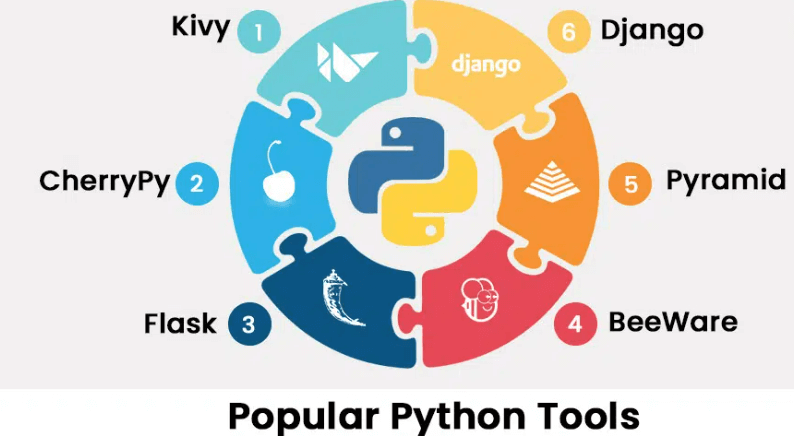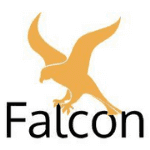Python Mobile App DevelopmentApp Development in PythonTechnology is developing quickly. Smartphones, artificial intelligence, and other gadgets will therefore gradually advance. Then, to put those technologies to use, we developed a variety of tools including mobile applications that are run by programming languages. The Python programming language is among the most widely used ones. Python is a popular programming language among developers. It beat out Java's original coding language to be named the greatest programming language of 2019. It was given the title and considerably facilitated the entire mobile app development process. Let's get started by learning everything there is to know about creating mobile apps in Python, as well as the differences between Python and Java. Why Python for the Development of Mobile Apps?One of the well-liked general-purpose programming languages used to develop mobile applications for many mobile platforms, it is open source. The process of creating apps with Python is simple to understand and learn, and new code can be created quickly. It may be used with other languages and performs well with massive volumes of data. The popularity of Python, which Guido van Rossum developed 30 years ago, has only increased, and it is growing quite quickly. The language comes with a wealth of dependable libraries and frameworks due to its tremendous popularity. It's not surprising that there are sufficient tools for creating iOS and Android apps among them given that a sizable community has previously resolved and rectified hundreds of problems on websites like Stack Overflow, Discord, and Slack. Finding experts or top talent is simple because the Python ecosystem has numerous developers who can design mobile applications. Additionally, Python offers popular frameworks and modules that let you create code once and run it across a variety of mobile platforms (i.e., Android, iOS). Cross-platform development describes this. The ability to programme for several platforms is a big benefit of using Python for mobile development. In the past, to create apps for both iOS and Android, developers would have to simultaneously work with two independent app versions based on various programming languages. Thanks to a Kivy and Beware frameworks, developers can now simply translate a single piece of code to versions that operate on iOS, Android, or other platform of their choosing without having to write separate smartphone and desktop apps each one at a time. Frequently Used Python Frameworks for Mobile DevelopmentLet's look at the best Python frameworks available for creating Python applications. 1. DjangoDjango, a high-level, entire web framework created inside the Python programming language, promotes quick mobile application development with clear, unambiguous design. Like other programming languages, it is also utilised for backend development. With Django, users may quickly transition programmes from concept to completion. Additionally, this tool puts security first and helps developers avoid common security mistakes. The Essentials of Django
2. Pyramid: A Python Framework for Mobile AppsIt is a compact and quick web development framework for Python 2 and 3 that is intended to make it easier for you to construct online programmes quickly. Additionally, it only offers the fundamental technologies-code URL mapping, static asset serving, and security-that are required for almost all web applications. With virtual environments, packaging tools, logging, and other capabilities, Pyramid also promotes common cross-platform Python framework practises. Pyramid Characteristics
3. BeeWare: A Python Framework for Mobile AppsBeeWare is a collection of Python native software development libraries and delivery technologies. A developer can make cross-platform native GUI port Python programmes using the library and tooling. In addition, Toga GUI toolkit, native Python apps, and cross-platform UI applications are included in BeeWare. A Python library for dealing with Java libraries is called Rubicon Java. A briefcase is a tool for creating distributable artefacts that may be sent to end users to package Python programmes. Additionally, pre-compiled Python binaries are used on systems that do not have official Python installers aren't accessible. Rubicon ObjC is a Scripting language library tool for interfacing to Objective C libraries that is available for iOS and macOS.  Key Features of BeeWare
4. FalconFalcon is a high-performing, dependable Python web framework used for creating microservices and the backends of large-scale applications. Applications developed using Falcon work for any ASGI or WSGI server and are supported by Python versions 3.5 and higher. Additionally, it has a well efficient codebase and is extendable. Falcon uses asset classes, URI templates, and other techniques for simple routing.  In addition, it provides straightforward access to a headers and body through the request or response classes. Falcon makes quick work of unit testing because to WSGI aids. DRY request processing is carried out using middleware elements and hooks. 5. KivyKivy is an open-source Python framework that employs cutting-edge UI, such as multi-touch apps, to speed up the creation of apps. It is cross-platform, business-friendly, and GPU-accelerated. PIL, GStreamer, Cairo, and other Python libraries are used by this framework. 6. CherryPyCherryPy is a Python object-oriented web framework. It enables users to create web apps in the same way that they can create other object-oriented Python programmes. This utility also makes it simple to start many HTTP servers simultaneously. Additionally, its adaptable plugin system is well-known. Additionally, it has capabilities for encoding, cache, authentication, static material, sessions, and many other things built right in. Additionally, CherryPy has built-in support for testing, profiling, and coverage. It is compatible with Python 2.7 and higher, Python 3.5 and higher, Android, PyPy, and Jython. What Kinds of Applications Can We Create with Python?Apps For Audio and VideoYou may construct audio and video programmes with Python both music and other uses. We might look into internet multimedia content using the Python computer language. OpenCV and PyDub are two Python libraries that aid in the effective completion of a app development process. Game App CreationBattlefield 2 and EVE Online are two video games that were developed using Python. The Pirates of the Caribbean video game had been produced with the help of the Panda 3D engine, which uses Python as its game programming language. All of the features and add-ons in Battlefield 2 are written in Python. The video game World with Tanks also makes use of it for a lot of its features. Swift game prototypes are created by developers and tested in real time using Python & Pygame. Python can be used to create tools that facilitate the creation of dialogue trees and level designs for video games. Using Blockchain TechnologyOne of the most well-liked technological advancements, blockchain, is currently ruling the industry. Python makes blockchain development simpler for developers, which is a challenge. It is a straightforward language that makes it easier to create blockchain applications. Using HTTP requests, developers can communicate with blockchain through the Internet. Additionally, they use Python frameworks such Flask to build endpoints for different blockchain functions. Python allows for the execution of programmes across several machines, enabling the creation of a decentralised network. Apps for Machine LearningMachine learning, which utilizes algorithms to generate data to operating systems and give them the ability to reason, is another technological development of this decade. Making machine learning applications used to be difficult, but Python has made it easier. Pandas and Scikit are two free machine learning software for Python that are available on the market. It can be used under a GNU licence. One of these machine learning methods called NLP (Natural Language Processing) enables a system to comprehend, analyse, and alter human language in order to improve algorithm performance. These helpful and highly competent modules can also be used by programmers to build machine learning applications if they have a basic understanding about Python. Commercial AppsPython can build a wide range of apps and promotes pragmatic agility. Python makes it easier to create both ERP and eCommerce solutions. Odoo (all-in-one management software), which is written in Python and provides a selection of business administration apps, provides a wide range of business applications. A well-known commercial application called Tryton has three levels of high-level functionality and was created entirely in Python. Python is used by top app development businesses since it makes it simple to create this kind of application. Next TopicSave json File in Python |

We provides tutorials and interview questions of all technology like java tutorial, android, java frameworks
G-13, 2nd Floor, Sec-3, Noida, UP, 201301, India










